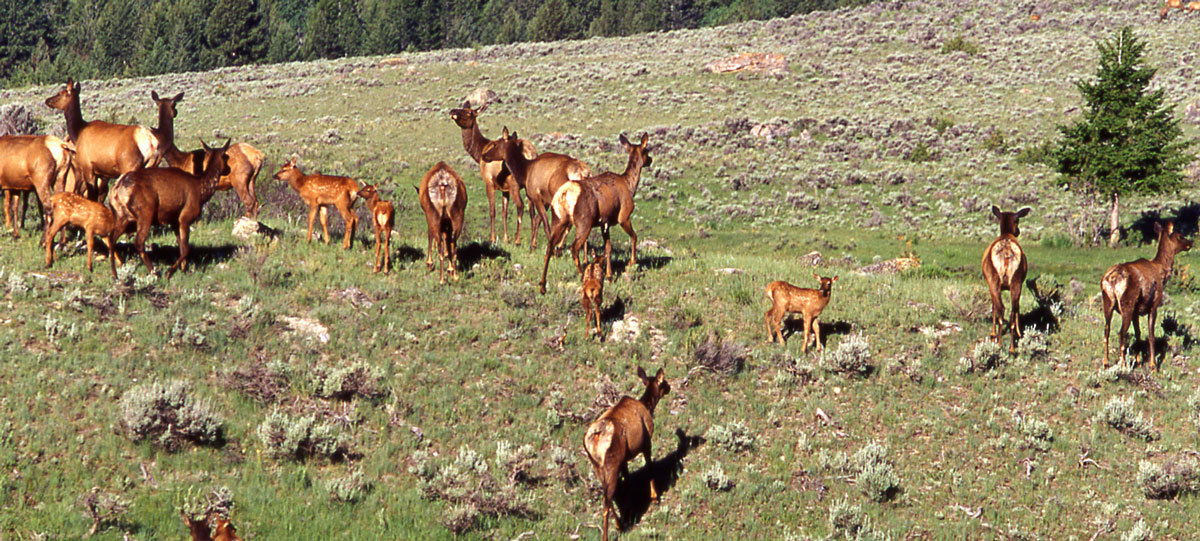A scientific study monitoring the migratory movements of elk in Yellowstone and Grand Teton National Parks indicates the animals follow their stomachs in search of the best forage.
“The decisions that these animals make about when to migrate are absolutely dependent on changes in the landscape, changes that are ultimately governed by the climate,” Arthur Middleton, assistant professor of environmental science, policy and management at UC Berkeley and study lead, told the Post Register. “And in the future, with climate change, we should expect the timing of these mass movements to be altered, which will affect the other wildlife and the people who depend on them, including predators, scavengers and hunters across the ecosystem.”
The Rocky Mountain Elk Foundation and its partners provided funding for the study.
The landscape-wide elk migration movements are featured in an interactive exhibit currently on display at RMEF headquarters.
(Photo Source: Jim Peaco/NPS)
